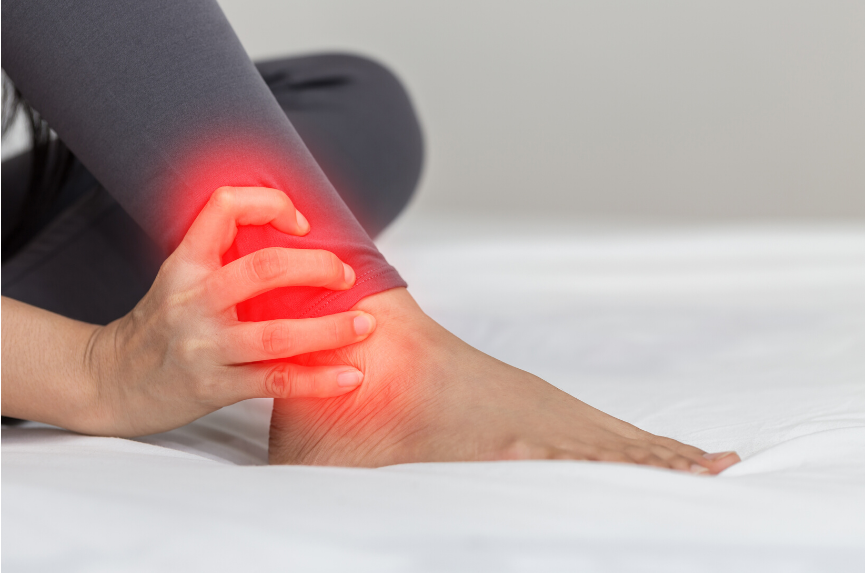Understanding and Preventing Common Running Injuries: A Comprehensive Guide
- Christopher Nour

- May 24, 2024
- 3 min read
Running is a fantastic way to stay fit, but it's not without its risks. From overuse injuries to acute strains, runners can encounter a variety of physical challenges along their journey. Fortunately, physiotherapy offers effective strategies for managing and preventing common running injuries. In this blog, we'll explore some of the most prevalent running injuries and how physiotherapy can play a crucial role in recovery and rehabilitation.
Plantar Fasciitis: Plantar fasciitis is a painful condition characterised by inflammation of the plantar fascia, a thick band of tissue that runs along the bottom of the foot. It often presents as heel pain, particularly after periods of rest or intense activity. Physiotherapy for plantar fasciitis may include stretching exercises to improve flexibility, strengthening exercises to support the arch of the foot, and manual therapy techniques to reduce pain and inflammation. Additionally, physiotherapists can provide guidance on proper footwear and biomechanical corrections to alleviate stress on the plantar fascia.
Shin Splints: Shin splints, or medial tibial stress syndrome, occur when the muscles and tendons surrounding the shinbone become inflamed due to repetitive stress. Runners may experience dull or sharp pain along the inner edge of the shinbone during or after running. Physiotherapy interventions for shin splints often focus on reducing inflammation, strengthening the muscles of the lower leg, and addressing biomechanical imbalances that contribute to excessive stress on the shins. Techniques such as massage, icing, and taping may also be utilised to alleviate symptoms and promote healing.
IT Band Syndrome: Iliotibial (IT) band syndrome is a common overuse injury that affects the IT band, a thick band of connective tissue that runs along the outside of the thigh. Runners with IT band syndrome may experience sharp pain on the outer knee or hip, especially during activities like running or cycling. Physiotherapy treatment typically involves stretching and foam rolling to release tightness in the IT band, strengthening exercises to address muscular imbalances, and biomechanical assessments to identify contributing factors such as overpronation or leg length discrepancies.
Runner's Knee (Patellofemoral Pain Syndrome): Runner's knee, or patellofemoral pain syndrome, is characterised by pain around the kneecap, particularly with activities like running, squatting, or climbing stairs. It often results from overuse, poor biomechanics, or muscular imbalances affecting the alignment of the kneecap. Physiotherapy interventions for runner's knees may include strengthening exercises to improve the stability of the knee joint, flexibility exercises to address tight muscles, and manual therapy techniques to reduce pain and inflammation. Additionally, gait analysis and orthotic interventions may be recommended to correct underlying biomechanical issues.
Achilles Tendonitis: Achilles tendonitis is an overuse injury that occurs when the Achilles tendon, which connects the calf muscles to the heel bone, becomes inflamed and painful. Runners may experience stiffness, swelling, and tenderness in the Achilles tendon, particularly after running or upon waking in the morning. Physiotherapy for Achilles tendonitis may involve eccentric strengthening exercises to improve tendon resilience, stretching exercises to maintain flexibility, and modalities such as ultrasound or laser therapy to promote tissue healing. Additionally, biomechanical assessments can help identify contributing factors such as calf tightness or improper footwear.
Whilst running injuries can be frustrating, they don't have to derail your training or sideline your goals. With the help of physiotherapy, runners can overcome common injuries, address underlying biomechanical issues, and return to pain-free running with confidence. By incorporating targeted exercises, manual therapy techniques, and expert guidance into their rehabilitation plans, runners can optimise their recovery and reduce the risk of future injuries. If you're struggling with a running injury, don't hesitate to book in with one of our physiotherapists for a running assessment now!



Comments